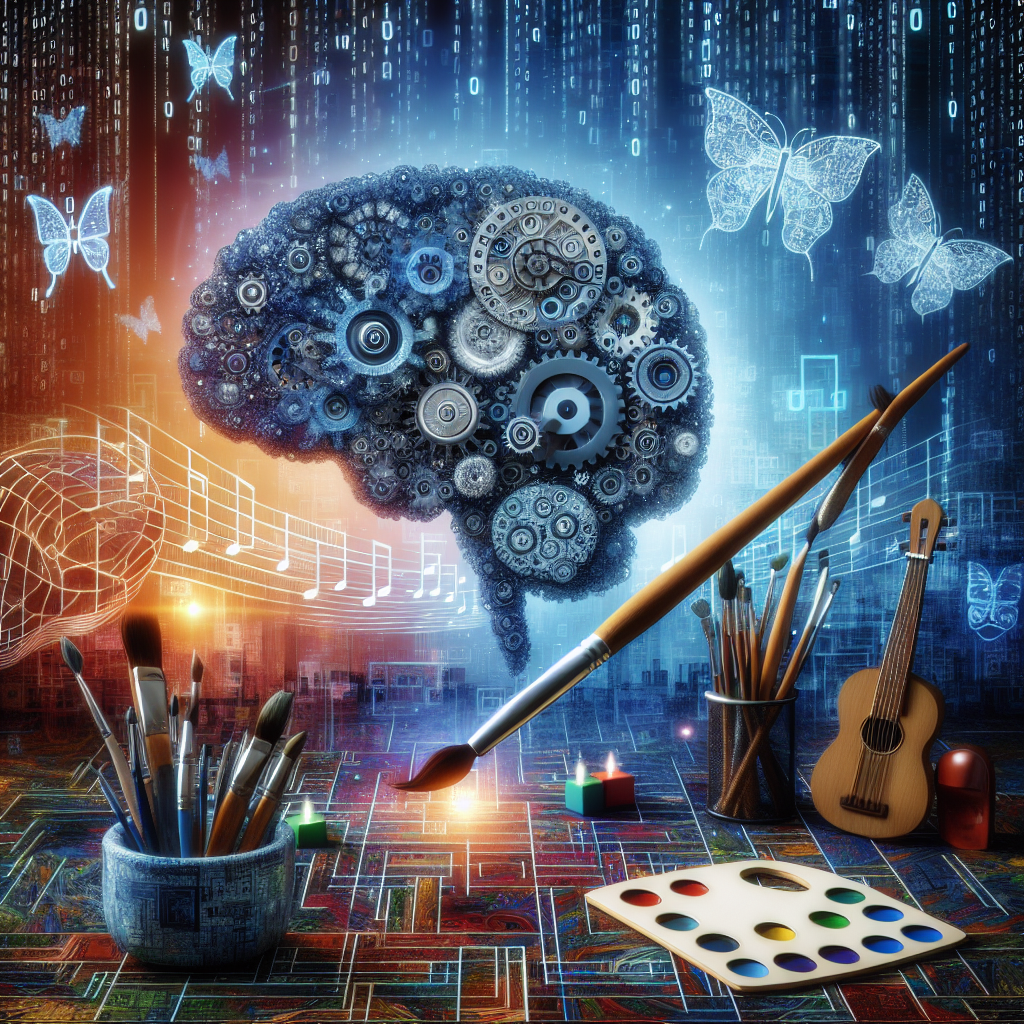Artificial Intelligence (AI) has revolutionized many industries, including healthcare, finance, and transportation. However, one area that is often overlooked is its impact on creative practices. AI has the potential to redefine the way we create art, music, literature, and more. In this article, we will explore the role of AI in redefining creative practices and its implications for the future.
AI and Art
One of the most well-known applications of AI in the creative field is the creation of art. AI algorithms can generate artwork in various styles, from classical to abstract, based on input data. For example, Google’s DeepDream algorithm can turn ordinary images into psychedelic works of art by enhancing patterns and textures. Another example is the AI artist, Ai-Da, who creates drawings and paintings using a robotic arm.
AI can also assist artists in the creative process by providing inspiration and feedback. For instance, AI algorithms can analyze trends in art and suggest new ideas or styles to artists. They can also analyze an artist’s work and provide feedback on composition, color palette, and more. This can help artists improve their skills and create better artwork.
AI and Music
AI has also made its mark in the music industry. AI algorithms can compose music in various genres, from classical to pop, based on input data. For example, OpenAI’s MuseNet can generate music in multiple styles, instruments, and genres. Another example is the AI musician, Shimon, who can improvise music in real-time with human musicians.
AI can also help musicians in the creative process by providing new ideas and tools. For instance, AI algorithms can analyze music trends and suggest new melodies or chord progressions to musicians. They can also assist in the production process by automating tasks like mixing and mastering. This can help musicians save time and focus on creating music.
AI and Literature
AI has also been used to generate literature, from short stories to novels. AI algorithms can generate text in various genres and styles, based on input data. For example, OpenAI’s GPT-3 can generate coherent and engaging text on a wide range of topics. Another example is the AI writer, AIsa, who can write poetry and short stories.
AI can also assist writers in the creative process by providing ideas and feedback. For instance, AI algorithms can analyze literary trends and suggest new plot twists or character developments to writers. They can also help writers improve their writing skills by providing feedback on grammar, style, and more. This can help writers produce better literary works.
Implications for the Future
The role of AI in redefining creative practices raises several implications for the future. One of the main implications is the democratization of creativity. AI algorithms can assist artists, musicians, and writers in the creative process, making it easier for anyone to create art, music, or literature. This can lead to a more diverse and inclusive creative community.
Another implication is the blurring of the lines between human and machine creativity. AI algorithms can generate artwork, music, and literature that is indistinguishable from human-created works. This raises questions about the nature of creativity and the role of AI in the creative process. Will AI algorithms replace human creativity, or will they enhance it?
FAQs
Q: Will AI replace human creativity in the future?
A: While AI algorithms can assist in the creative process, they are unlikely to replace human creativity entirely. Human creativity is a complex and nuanced process that involves emotions, experiences, and personal expression. AI algorithms lack these qualities and are limited to generating artwork, music, and literature based on input data. However, AI can enhance human creativity by providing new ideas, tools, and feedback.
Q: How can I use AI in my creative practice?
A: There are several ways to incorporate AI into your creative practice. You can use AI algorithms to generate artwork, music, or literature based on input data. You can also use AI to analyze trends in your creative field and suggest new ideas or styles. Additionally, you can use AI to assist in the production process by automating tasks like mixing and mastering. Experiment with different AI tools and see how they can enhance your creativity.
Q: What are the ethical implications of using AI in creative practices?
A: The use of AI in creative practices raises several ethical implications, such as copyright infringement, bias, and ownership of creative works. AI algorithms can generate artwork, music, and literature that may resemble existing works, leading to questions of originality and plagiarism. Additionally, AI algorithms can perpetuate bias and stereotypes present in the input data, raising concerns about diversity and representation. It is important to consider these ethical implications when using AI in your creative practice.
In conclusion, AI has the potential to redefine creative practices in art, music, literature, and more. AI algorithms can generate artwork, music, and literature in various styles and genres, as well as assist artists, musicians, and writers in the creative process. The role of AI in redefining creative practices raises implications for the future, such as the democratization of creativity and the blurring of the lines between human and machine creativity. It is important to consider these implications and ethical concerns when using AI in creative practices.

